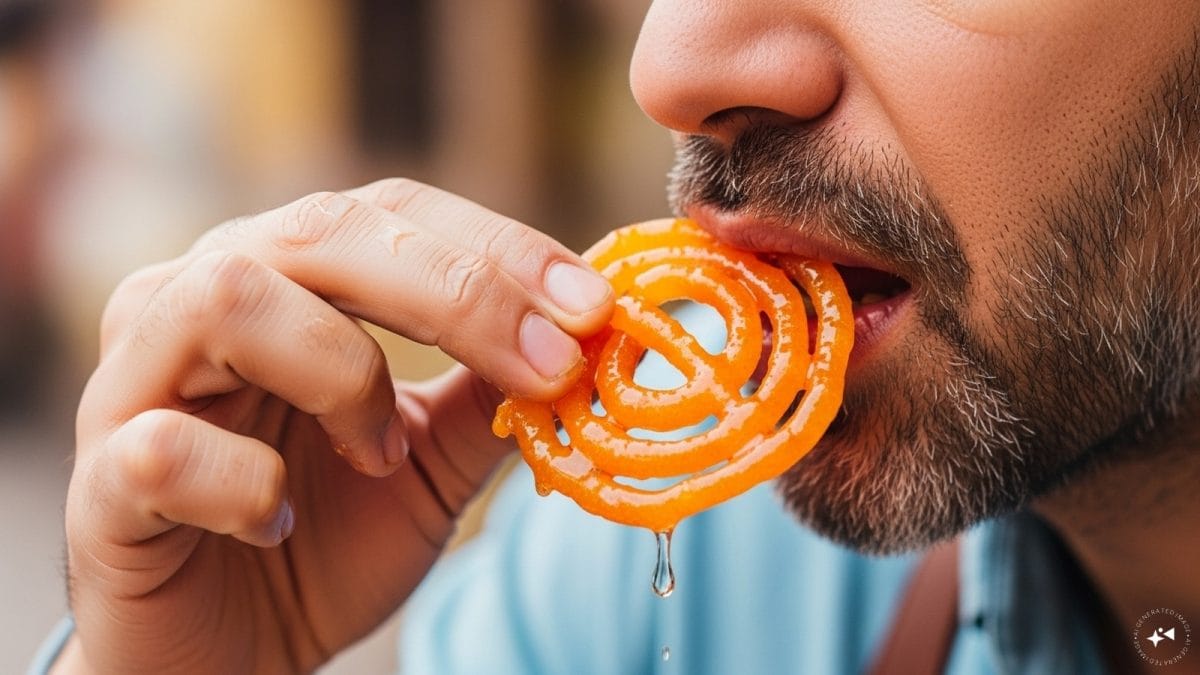Last Updated:
By moderating sugar and salt, staying hydrated, managing stress and keeping up with routine check-ups, you can celebrate while protecting your heart for the long run.

Opt for smaller portions and natural sweeteners in your festive sweets.
The festive season is a time of joy, colours, and gatherings, but it also brings plates piled high with sweets, rich snacks, and indulgent meals. While these celebrations are a source of happiness, they can silently strain the heart, especially for those with hypertension, diabetes, or pre-existing cardiovascular conditions. Blood sugar spikes, extra sodium, and stress from a packed calendar can accumulate, making it essential to approach festivities with both enjoyment and mindfulness.
Sugar and Its Sweet Trap
Recommended Stories
“Most festive desserts are made with plenty of refined sugar and ghee. A sudden overload of sugar causes blood glucose to shoot up and raises triglycerides. If this happens often, it can lead to insulin resistance and, over time, increase the chance of developing type 2 diabetes and atherosclerosis, which are well-known precursors to heart disease,” explains Dr. Priya Palimkar, Senior Consultant, Cardiologist at Sahyadri Hospitals, Pune.
Small tweaks can make a big difference. Dr. Palimkar advises, “Instead of giving up your favourite treats, have smaller portions and, when possible, choose sweets made with natural sweeteners like dates or jaggery. Pairing a piece of mithai with a few nuts or protein-rich snacks slows sugar absorption and keeps blood glucose stable.”
Salt: The Hidden Heart Challenge
Salty festive snacks and gravies can quietly elevate blood pressure. “Too much sodium directly raises blood pressure and forces the heart to work harder, while also speeding up damage to the arteries,” Dr. Palimkar notes.
Dr. Srinivas Kudva, Cardiologist at Lilavati Hospital, Mumbai, adds, “Salty foods and gravies rich in fats raise sodium levels, causing fluid retention and high blood pressure, directly affecting cardiac workload.”
Simple strategies help. “Preparing snacks at home lets you control salt levels, and rinsing packaged foods before serving can wash away excess sodium,” Dr. Palimkar suggests. Herbs, lemon juice, and spices are flavorful alternatives that keep dishes heart-friendly.
Managing Stress and Sleep
The excitement of festivities often comes with late nights, irregular meals, and endless social commitments. “Holiday flurries can spike cortisol levels, not only derailing blood pressure management but also inducing unhealthy eating,” says Dr. Kudva. Dr. Palimkar adds, “Aim for seven hours of good-quality sleep and carve out at least 20–30 minutes for brisk walking or light exercise. Even a few minutes of deep breathing or meditation can lower stress and stabilise heart rhythm.”
Hydration and Moderation Matter
Water and water-rich foods are often overlooked in festival season. Mild dehydration forces the heart to work harder and can disturb electrolyte balance. Dr. Palimkar recommends, “Drink plenty of water, include fruits and vegetables, and keep alcohol moderate—no more than one standard drink a day for women and two for men.”
Festivals are meant to be joyful, and mindful practices ensure the heart keeps pace. Dr. Kudva concludes, “By moderating sugar and salt, staying hydrated, managing stress, and keeping up with routine check-ups, a person can revel in traditions while keeping the heart safe and sound.”
With small adjustments and awareness, indulgence and heart health can coexist, letting you enjoy festive feasts with both joy and care.
Delhi, India, India
September 30, 2025, 19:58 IST
Loading comments…
Go to Source
Author: News18



